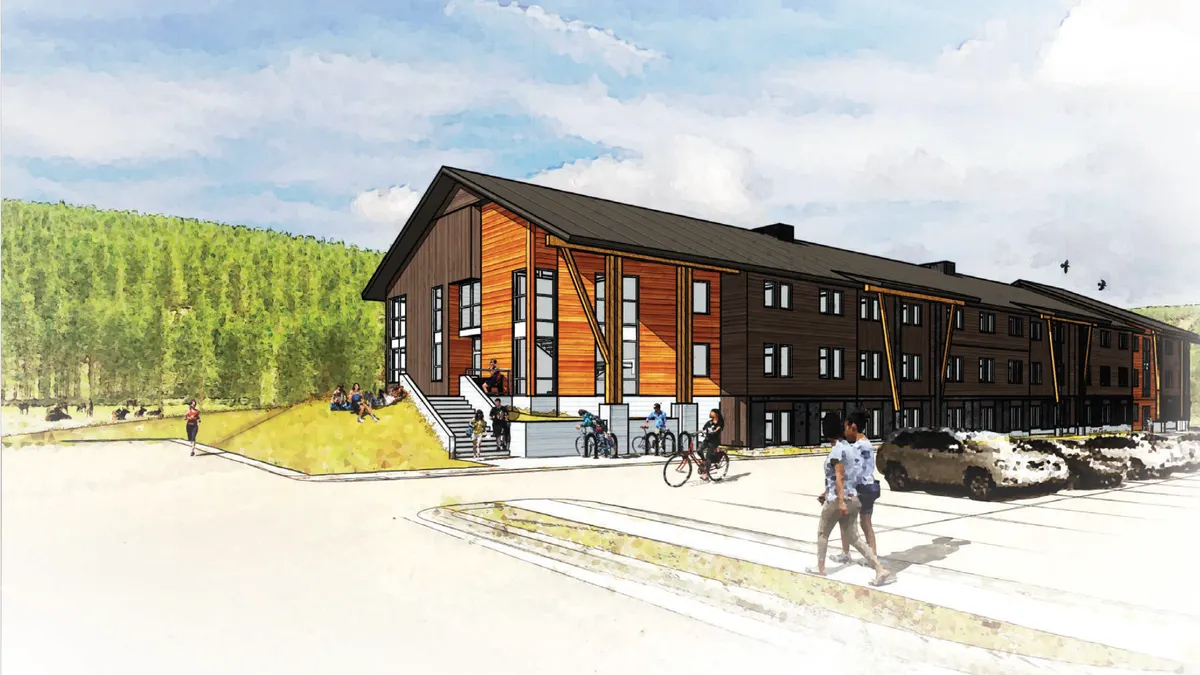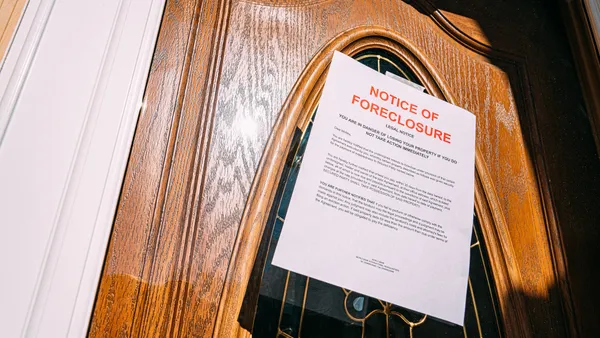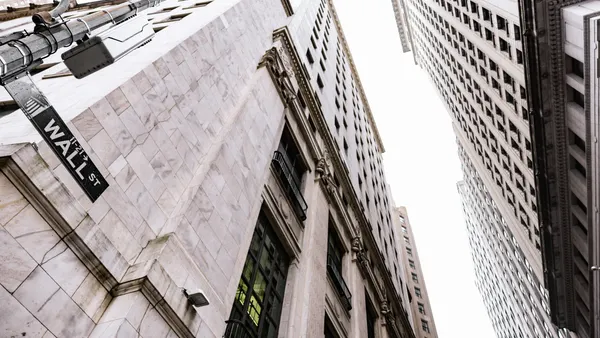Dive Brief:
- As volatility in the capital markets continues, more apartment commercial mortgage-backed securities loans are being transferred into special servicing, according to a new report from Trepp, a data and analytics firm.
- The multifamily special servicing rate jumped 67 basis points to 1.90% in August. Multifamily debt comprised 20% of the $2.45 billion in CMBS debt sent to special servicers in August. In addition, the multifamily delinquency rate rose one basis point to 0.95%, according to a Trepp report shared with Multifamily Dive. Still, delinquencies below 1% are historically low. Those rates have generally been above 1% since 2007.
- Multifamily still trailed retail in terms of loans being transferred to servicing. Retail saw a 117 basis point jump to 11.03% and made up 56% of newly transferred balances. The Trepp CMBS Special Servicing Rate, which covered all commercial properties, rose 13 basis points in August to 4.92%.
Dive Insight:
CMBS loans, which are grouped together and packaged into bonds sold to investors, are only one form of financing used by apartment borrowers. But they were the second most popular form of financing for apartment investors last year, ranking behind government agency loans from Fannie Mae and Freddie Mac, according to information that Real Capital Analytics supplied to Multifamily Dive. CMBS lenders claimed an all-time high of 15% of multifamily loans in 2021.
Commercial mortgage-backed security loans for apartments posted low delinquency rates over the last couple of years. But slowing fundamentals and rising interest rates, which make it more difficult for borrowers to refinance, could lead to pain in the coming months.
“We do expect the multifamily properties with floating rate notes to face headwinds in the current interest rate environment,” Trepp Senior Director of CRE Products Sumit Grover told Multifamily Dive. “Some of the longer maturity loans usually bundled into CMBS deals have a hedge with rate caps that will limit how high the payment can go.”
Grover thinks collateralized loan obligation products will be more susceptible to interest rate increases because they are more short-term in nature.
“Currently over $40 billion of Multifamily CRE CLO debt is set to expire by the end of 2024,” he said. “These are usually new construction or value-add properties in markets like Dallas, Phoenix, Los Angeles and Charlotte and may face additional pressure when they are ready for refinancing.”
While Grover said very few of these properties are delinquent or facing payment issues, the situation could shift.
“For metros like Phoenix and Dallas that have seen strong topline revenue gains for the past 18 months, valuations can become skewed if underwriters are placing too much weight on recent rent growth and not enough on longer-run trends and fundamental supply-demand issues,” Trepp Research Director Stephen Buschbom told Multifamily Dive.
Click here to sign up to receive multifamily and apartment news like this article in your inbox every weekday









